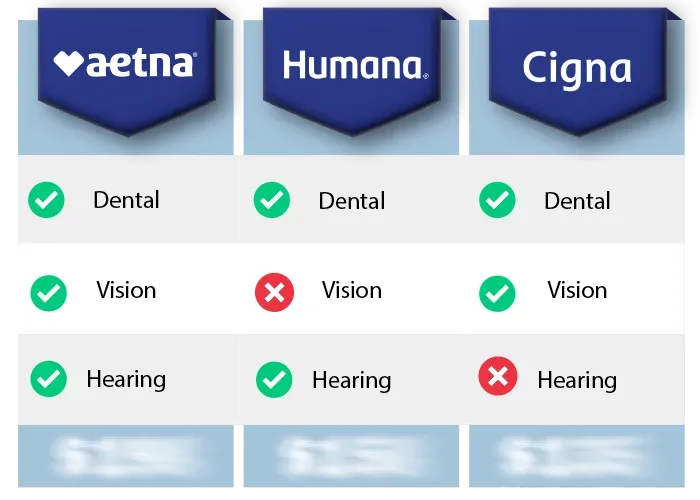
Medicare Hearing Aids: Navigating the Sounds of Coverage
Medicare Hearing Aids: Navigating the Sounds of Coverage
Introduction
Hearing aids are essential for millions of Americans, allowing them to experience life's precious moments with clarity. But, with the soaring costs of medical equipment, many wonder, does Medicare cover hearing aids? In this guide, we'll explore the intricate relationship between Medicare and hearing aids, offering insights into coverage nuances, technological advancements, and what beneficiaries need to be aware of in today's ever-evolving healthcare landscape.
A Glimpse into Hearing Loss in the US
Hearing loss is no minor issue. It affects millions, and as the population ages, the number of individuals requiring hearing aids is on the rise. According to the National Institute on Deafness and Other Communication Disorders (NIDCD), nearly one in three people between the ages of 65 and 74 experience hearing loss. This highlights the pressing need for affordable hearing aid solutions.
Medicare's Stance on Hearing Aids
At its core, Medicare is a federal health insurance program designed for seniors aged 65 and over. It's split into different parts, each covering specific services:
Part A: Hospital Insurance
Part B: Medical Insurance
Part C: Medicare Advantage Plans
Part D: Prescription Drug Plans
When it comes to hearing aids, Original Medicare (Part A and Part B) does not cover them. This means beneficiaries are typically responsible for all costs associated with purchasing a hearing aid. However, Medicare Part B does cover diagnostic hearing exams if ordered by a physician for a specific medical purpose.
Exploring the Medicare Advantage Alternative
Medicare Advantage (Part C) is an alternative to Original Medicare, provided by private insurance companies approved by Medicare. These plans often include additional benefits not covered by Original Medicare, such as vision, dental, and, in some cases, hearing aids. Therefore, beneficiaries looking for hearing aid coverage might find solace in Medicare Advantage plans. However, it's crucial to research individual plans, as coverage can vary widely.
Why Doesn't Original Medicare Cover Hearing Aids?
It's a question many beneficiaries ask. Despite the clear need for hearing aids among seniors, Original Medicare still excludes them from coverage. This omission dates back to the inception of the Medicare program. Advocacy groups have long been pushing for change, but as of now, the exclusion remains.
The Rising Tide of Technological Advancements
Hearing aids have come a long way from the bulky devices of yesteryears. Modern hearing aids are sleek, efficient, and equipped with state-of-the-art technology. From Bluetooth connectivity to noise-cancellation features, the advancements in hearing aid technology make them more appealing and functional than ever. However, these advancements often come with a heftier price tag, underscoring the need for some form of financial assistance or insurance coverage.
Conclusion
The relationship between Medicare and hearing aids is multifaceted and often confusing for many beneficiaries. While Original Medicare may not offer coverage for hearing aids, beneficiaries are not entirely without options. By exploring Medicare Advantage plans or seeking out assistance programs and nonprofit organizations, beneficiaries can find pathways to affordable hearing care.

Copyright © 2025 Senior Benefits Guide All Rights Reserved.
204 Church St Suite 1A, Boonton NJ 07005
Disclaimer: This website is not affiliated with the Medicare/Medicaid program or any other government entity. The information provided on this website is for informational purposes only. It is not intended to be, nor does it constitute any kind of financial advice. Please seek advice from a qualified professional prior to making any financial decisions based on the information provided. This website acts as an independent digital media & advertising publisher. This webpage is formatted as an advertorial. An advertorial is an advertisement that is written in an editorial news format. PLEASE BE AWARE THAT THIS IS AN ADVERTISEMENT AND NOT AN ACTUAL NEWS ARTICLE, BLOG, OR CONSUMER PROTECTION UPDATE. This website MAY RECEIVE PAID COMPENSATION FOR CLICKS OR SALES PRODUCED FROM THE CONTENT FOUND ON THIS WEBPAGE. This compensation may affect which companies are displayed, the placement of advertisements, and their order of appearance. Any information, discounts, or price quotations listed may not be applicable in your location or if certain requirements are not met. Additionally, our advertisers may have additional qualification requirements.
Our goal is to provide exceptional service. One of our agents may reach out to you to discuss your order, ask for feedback, and/or see if you need any assistance with your products, services, or plans, at the phone number you provided regardless of your do-not-call list status. You may opt-out of further contact at any time by simply telling our customer service team that you would no longer like to be contacted. In the event that our team is unable to reach you by phone, they may send you a text message letting you know that we called. Both our text messages and phone calls may be sent or connected utilizing automated software. Carrier charges may apply. You may opt-out of any future contact via text message by replying anytime with "STOP".
Copyright © 2025 All Rights Reserved.
Find Medicare Advantage Plans in 3 Easy Steps

